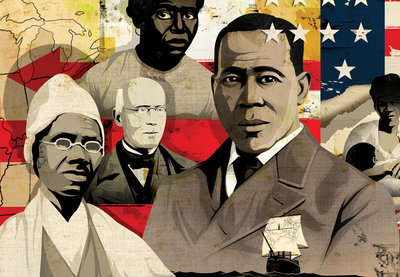Students should know that enslaved people had families that could be split up at any time.
What Else Should My Students Know?
4.A Enslaved people loved their families, just like other people.
4.B Enslavers often separated families to make more money or as punishment. Once separated, families were rarely able to communicate or reunite. After the end of slavery, many formerly enslaved people searched long and hard, often in vain, to find their missing family members.
4.C When children were not allowed to live with their families, other enslaved people took care of them.
4.D About half of all enslaved people lived under the same roof as the families they worked for. Sometimes they ate the same food and wore the same clothes.
How Can I Teach This?
- At first, teachers should discuss the very nature of family. They should begin by asking questions such as: “Who makes a family?” “What do families do for each other?” “How does it feel to be part of a family?” The answers to these questions will provide fertile material for considering how enslaved people experienced family, while helping students to understand the ways that family members risked their lives for each other.
- Beginning to talk about the importance of families and their shared history can prepare students to understand the trauma of the separation of enslaved families. Books like Saltypie show students examples of family resilience in the face of adversity.
- Use trade books that show the close relationships and shared traditions among some enslaved families, such as Sky Sash So Blue, Circle Unbroken and Tea Cakes for Tosh. Encourage students to identify the ways that their family relationships are similar to those of these enslaved people.

